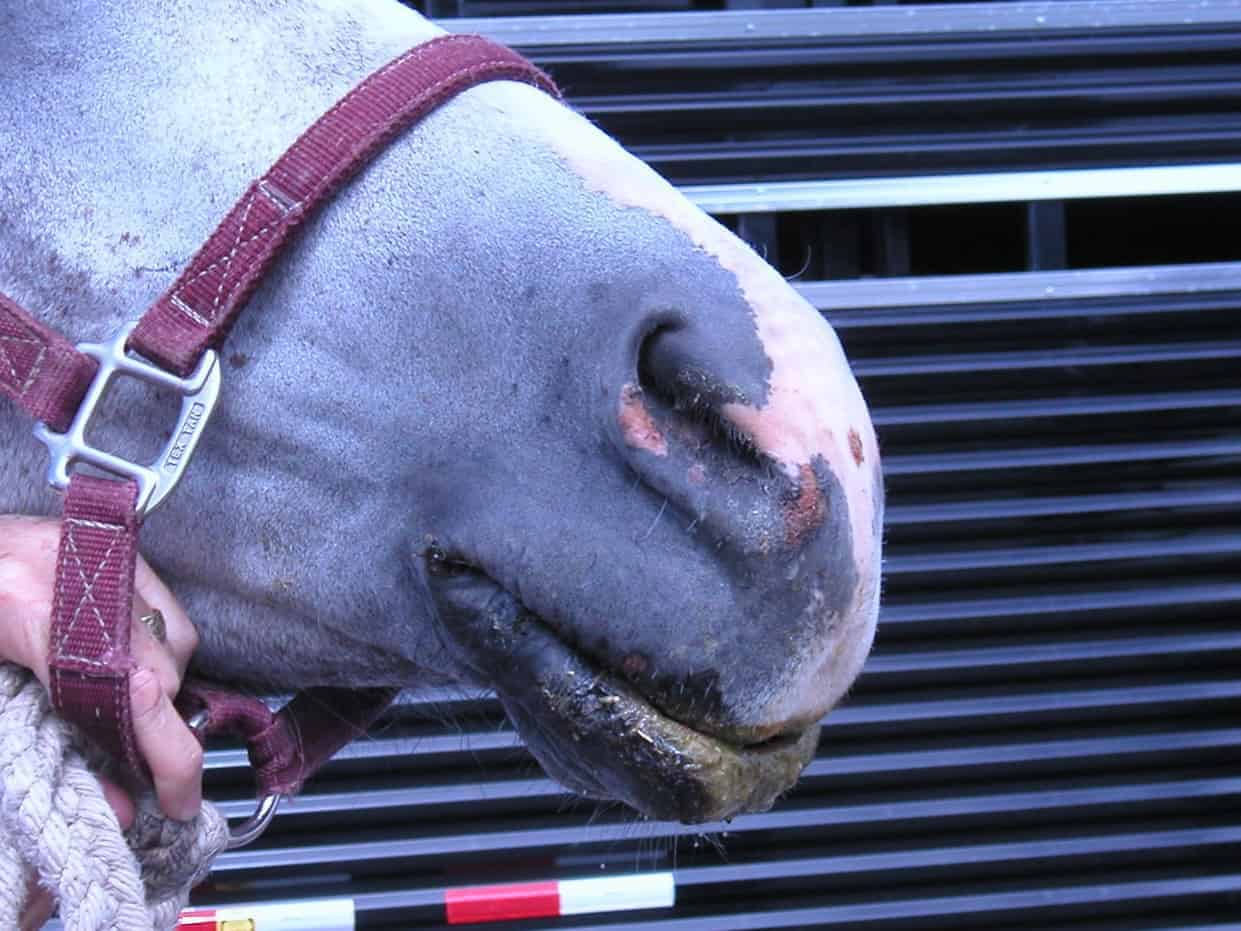Additional Vesicular Stomatitis Cases Confirmed in Kansas

Then, in its June 24 Situation Report, USDA-APHIS confirmed Sedgwick County’s first equine premises with VSV. Four premises in the county are affected.
Officials have also confirmed VSV in Butler County (nine new confirmed and two new suspect premises) and, since the June 19 Situation Report, one new equine premises in Cowley County. Thirty-two premises in three counties are currently under quarantine:
- Butler — 25
- Cowley — 3
- Sedgwick — 4
Veterinarians quarantine and monitor premises with confirmed positive and suspect cases for at least 14 days from the onset of lesions in the last animal affected
Create a free account with TheHorse.com to view this content.
TheHorse.com is home to thousands of free articles about horse health care. In order to access some of our exclusive free content, you must be signed into TheHorse.com.
Start your free account today!
Already have an account?
and continue reading.
Written by:
Edited Press Release
Related Articles
Stay on top of the most recent Horse Health news with















